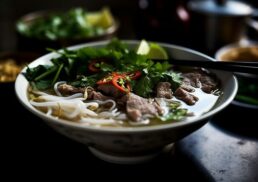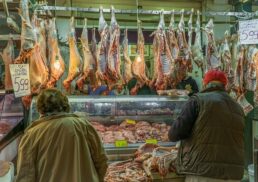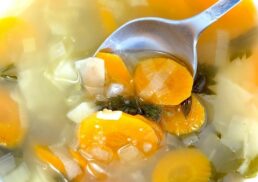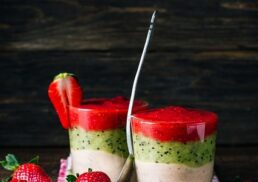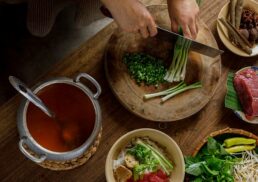Arabica coffee has long been revered as the epitome of coffee excellence, offering a world of diverse flavors and rich aromas that delight the senses and invigorate the soul. But what makes this captivating brew stand out among its caffeine-laden counterparts? Join us on a journey to unravel the mystique of Arabica coffee, unveiling its storied history, unique cultivation, and the many reasons it has captured the hearts of coffee connoisseurs worldwide.
Table of Contents
Key Takeaways
Arabica coffee beans have become the most popular and diverse type of coffee bean in the world, with their sweet and fruity flavors contributing to 60-70% of global production.
Cultivation is a labor intensive process that yields its renowned flavor & aroma, requiring specific growing conditions such as cool temperatures & well drained soil at high elevations.
To ensure quality while supporting sustainable practices when purchasing Arabica coffee, look for certifications like Fair Trade or Rainforest Alliance.
The Essence of Arabica Coffee
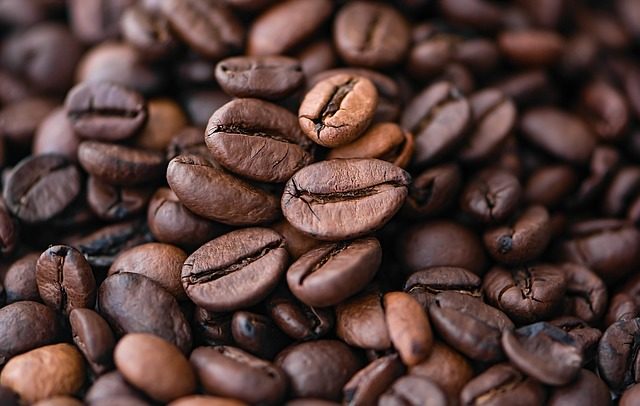
At the heart of the coffee world lies Arabica coffee beans, the most popular and diverse coffee plant in existence, derived from the Arabica coffee plant. Originating from Ethiopia, Arabica beans are known for their sweet and fruity flavors, contributing to approximately 60-70% of the world’s coffee production.
This enticing bean has found its way into the cups of coffee lovers around the globe and is now grown in countries such as:
Ethiopia
India
Guatemala
Colombia
Brazil
In fact, Brazil is the largest producer of Arabica coffee, significantly influencing the world’s coffee production landscape.
Origins and History
The story of Arabica coffee began around the 7th century when coffee was transported from Ethiopia to Arabia, which is why it’s called Arabica coffee. From its humble beginnings, Arabica coffee spread from its origin in Ethiopia to other parts of the world, including Arabia, India, and Indonesia.
Today, the name Arabica coffee not only reflects its historical origins but also the complex and captivating aroma of the roasted beans, which is often described as perfumed with undertones of fruit and sugar.
Aroma and Taste
Arabica coffee boasts a wide range of flavors, from sweet and soft to sharp and tangy, with hints of chocolate, nuts, and caramel. The olfactory characteristics of the Arabica coffee flowers, which grow on the coffee plant, share a pleasant and attractive scent similar to jasmine flowers. Unroasted Arabica beans emit a distinctive blueberry odor, further highlighting the unique characteristics of Arabica coffee. The Arabica beans smell is truly captivating and adds to the overall experience of enjoying this fine coffee.
These captivating flavors and aromas set Arabica coffee apart from other coffee types, such as its robusta counterpart, which is known for its more bitter and harsh taste. Dark roasted coffee, however, can bring out different characteristics in both Arabica and robusta beans.
The Cultivation of Arabica Coffee
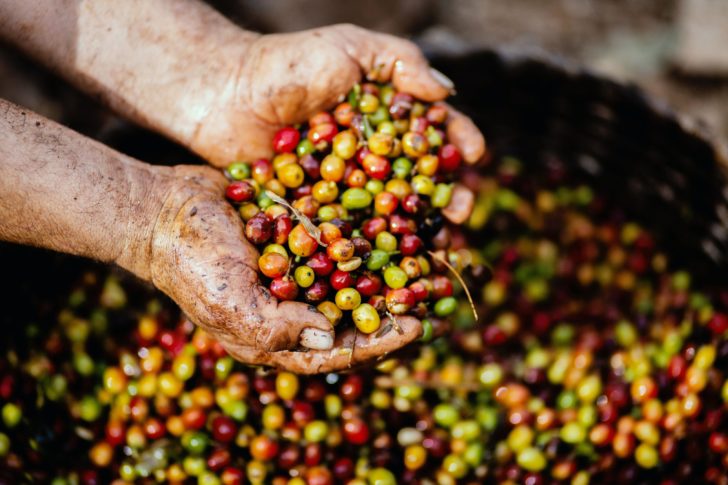
Arabica coffee thrives under specific climate conditions and requires diligent care and labor. This delicate plant flourishes in high altitudes and subtropical climates, with major producing regions spanning across South America, Africa, and parts of Asia where Arabica coffee is highly valued. In these regions, Arabica coffee grows under the watchful eyes of skilled farmers who ensure its quality.
The exceptional flavors and aromas of Arabica coffee are a testament to the meticulous cultivation practices employed by the dedicated farmers who nurture these cherished beans.
Growing Conditions
Arabica coffee plants prefer cool, subtropical climates, with temperatures ranging from 70 to 80 degrees Fahrenheit during the day and 65 to 70 degrees Fahrenheit at night. Ideally, Arabica coffee should be grown in moist, fertile, well-drained soil under a shaded canopy that receives ample sunshine each day.
These plants are typically cultivated at elevations of approximately 1,900+ feet (600+ meters) above sea level. Arabica coffee plants, being susceptible to pests, necessitate additional care and vigilance to ensure their healthy growth.
Major Producing Regions
South America, Africa, and certain areas of Asia are the principal producing regions of Arabica coffee, with Brazil taking the lead as the foremost producer. Quality Arabica coffee is also sourced from countries such as Ethiopia, Colombia, and India, where it is grown under specific conditions that contribute to its exquisite flavor profile.
A deeper exploration of these diverse regions and their unique growing conditions enhances our appreciation for the intricate tapestry of flavors and aromas that Arabica coffee offers.
Arabica Coffee Varieties
Within the Coffea arabica plant species, there are countless varieties and cultivars, each with its own distinct characteristics. Some of the most popular Arabica coffee varieties include:
Typica
Bourbon
Caturra
Catuai
Mundo Novo
SL28
Geisha
From the original Typica and Bourbon varieties to the numerous cross-bred varieties that have been developed over time, Arabica coffee offers a rich and diverse selection to satisfy the most discerning of palates.
Typica and Bourbon
Typica and Bourbon are the two main varieties of Arabica coffee, and from these, other varieties have been developed. Typica, which originated from southwestern Ethiopia, is renowned for its clean and complex flavors. In contrast, Bourbon, which has its origins on the island of Bourbon (now known as Réunion) in the Indian Ocean, is celebrated for its sweet and fruity flavors.
These two varieties not only showcase the versatility of Arabica coffee, but also serve as the foundation for many other varieties enjoyed by coffee enthusiasts today.
Popular Cross-Bred Varieties
Popular cross-bred Arabica varieties include Caturra, Catuai, and Geisha, each with unique flavor profiles and growing conditions. For example, Caturra is known for its mild, sweet flavor, while Batian boasts a more intense, fruity taste.
Sampling these different varieties allows coffee lovers to embark on a flavorful adventure, uncover new favorites, and broaden their appreciation for the diverse world of Arabica coffee.
Brewing and Enjoying Arabica Coffee
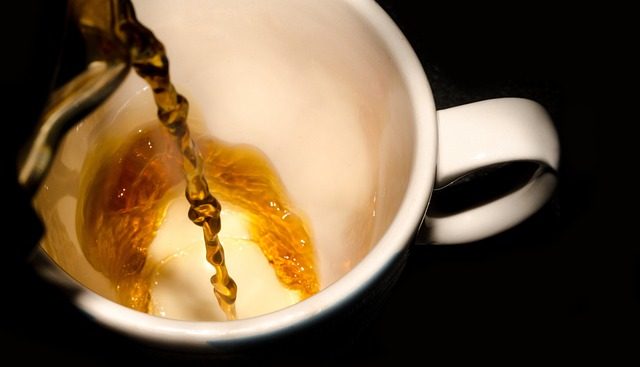
Exploring different brewing methods and pairings is key to fully savoring the delightful flavors and aromas of Arabica coffee. Each brewing method brings out distinct aspects of the coffee’s flavor, allowing you to discover and enjoy the nuances that make Arabica coffee truly exceptional.
For example, French press brewing brings out the coffee’s natural sweetness while pouring.
Brewing Methods
Arabica coffee can be enjoyed through various brewing methods, including:
Pour-over: allows for a clean and delicate extraction of flavors
French press: provides a more robust, full-bodied experience
Espresso: creates a concentrated and intense coffee flavor
Espresso, on the other hand, delivers a concentrated, intense shot of flavor that showcases the depth and richness of Arabica coffee. Experimenting with these brewing methods allows you to find the one that best accentuates your favorite flavors and aromas in your Arabica coffee.
Pairings and Recipes
Arabica coffee’s diverse flavor profile can be further enhanced when paired with complementary foods, such as pastries, chocolate, nuts, and fruits. Additionally, Arabica coffee can be incorporated into recipes like coffee-infused ice cream, coffee-flavored cakes, and coffee-infused cookies, allowing you to enjoy its rich flavors in new and creative ways.
Exploring various pairings and recipes elevates your Arabica coffee experience, leading to an indulgence in a symphony of delightful tastes.
Comparing Arabica and Robusta Coffee Beans
Despite Arabica coffee’s supremacy among coffee aficionados, understanding the differences between Arabica and Robusta coffee beans is crucial, especially when discussing the topic of “arabica vs” Robusta coffee. One key distinction lies in the robusta bean itself, which contributes to the unique flavor profile of Robusta coffee.
Exploring these distinct coffee types can help you appreciate the unique qualities that make Arabica the preferred choice for many coffee lovers.
Taste Differences
Arabica coffee is celebrated for its sweeter and fruitier taste, in contrast to the more bitter and harsh flavor of Robusta coffee. This difference in taste can be attributed to factors such as:
The variety of coffee bean used
The growing conditions, including altitude and climate
The processing method used to prepare the coffee beans
The brewing method used to make the coffee
These factors all contribute to the unique flavor profile of Arabica coffee.
For example, Typica and Bourbon Arabica varieties offer sweet and mild flavors with notes of chocolate and nuts, while Robusta coffee is known for its acrid and astringent taste. Understanding these taste differences facilitates making informed choices when selecting coffee beans that cater to your unique taste preferences.
Cultivation and Caffeine Content
Arabica coffee requires specific growing conditions, such as high altitudes, fertile soil, and a temperate climate, while Robusta coffee is more resistant to pests and can be cultivated in diverse climates. These cultivation differences play a significant role in the distinct flavors and aromas of each coffee type.
Additionally, Arabica coffee has approximately half the caffeine content of Robusta coffee, making it a more delicate and refined option for those who prefer a milder, less-caffeinated brew.
Finding Quality Arabica Coffee Brands
Finding quality Arabica coffee brands necessitates attention to labels, certifications, and, of course, taste.
Sampling different brands and blends enables you to discover the perfect Arabica coffee that appeals to your taste buds and aligns with your values, guaranteeing a truly satisfying coffee experience.
Reading Labels and Certifications
When shopping for Arabica coffee, look for labels indicating 100% Arabica beans and certifications such as Fair Trade, Rainforest Alliance, or USDA Organic. These certifications guarantee quality, organic production methods, and fair treatment of farmers, allowing you to enjoy your coffee with peace of mind.
Additionally, pay attention to information about the coffee’s origin to better understand the unique characteristics of the beans and the regions in which they were grown.
Learn more, visit How to Understand The Label on Your Bag of Roasted Coffee.
Trying Different Brands
Finding your favorite Arabica coffee brand may require some experimentation. Sample a variety of brands and blends to determine which one best suits your taste preferences.
Some of the most highly regarded Arabica coffee brands include:
Lifeboost
La Colombe
Stumptown Coffee Roasters
Mayorga Organics
Volcanica Coffee
By trying different brands, you can discover the unique flavors and aromas that make each brand special and find the perfect Arabica coffee to satisfy your palate.
The Environmental Impact of Arabica Coffee Production
Arabica coffee production’s environmental impact is a mounting concern, with deforestation, soil erosion, and harmful chemical use posing detrimental effects on the planet.
However, by supporting sustainable coffee practices, you can help mitigate these issues and enjoy your Arabica coffee with a clear conscience.
Challenges and Concerns
The challenges faced in Arabica coffee production include:
Deforestation, as land is cleared for agricultural purposes
Soil erosion due to the displacement of soil from its natural environment
The use of synthetic fertilizers, pesticides, and herbicides, which can be harmful to the environment
A grasp of these challenges aids in making more informed choices when selecting coffee beans and supporting brands that prioritize sustainability.
Supporting Sustainable Coffee
One way to support a more environmentally friendly coffee industry is by choosing coffee brands that prioritize sustainable practices and certifications, such as Fair Trade or Rainforest Alliance. Organic farming, shade-grown coffee, and water conservation are some of the sustainable coffee practices that can help reduce the environmental impact of Arabica coffee production.
Making conscious choices in your coffee purchases contributes to a more sustainable future for both the coffee industry and the planet.
Summary
Arabica coffee’s rich history, diverse flavors, and complex cultivation processes make it a truly exceptional brew, worthy of its esteemed reputation among coffee enthusiasts. By understanding the different varieties, brewing methods, and environmental implications of Arabica coffee production, you can deepen your appreciation for this beloved beverage and make informed choices that align with your taste preferences and values. So go ahead, indulge in the captivating world of Arabica coffee, and let your senses be whisked away on a flavorful journey like no other.
Frequently Asked Questions
What is so special about Arabica coffee?
Arabica beans offer an incredibly complex flavour, with notes of fruit, chocolate, nuts, and caramel.
They are lower in caffeine and more acidic, making them a smoother and sweeter cup of coffee for an enjoyable drinking experience.
Is Starbucks coffee beans Arabica?
Starbucks only buys Arabica coffee beans, as they are known for providing a great flavor and are highly versatile to create different tastes. Their commitment to quality ensures that they use 100% Arabica beans in their coffee.
This commitment to quality is what sets Starbucks apart from other coffee shops. They are dedicated to providing the best coffee experience possible, and their use of Arabica beans is a testament to that.
What is the difference between Arabica coffee and regular coffee?
Arabica coffee beans are generally oval, flat and oilier than Robusta beans, which tend to be smaller and rounder. Arabica has a smoother, sweeter taste, with notes of chocolate and sugar, while Robusta has a stronger, harsher and more bitter taste.
Arabica has almost twice the amount of sugar and less acidity compared to Robusta.
What are the ideal growing conditions for Arabica coffee?
Arabica coffee prefers cool, subtropical climates, high altitudes and nutrient-rich soil for optimal growth.
What are some popular Arabica coffee varieties?
Popular Arabica coffee varieties include Typica, Bourbon, Caturra, Catuai, and Geisha.

